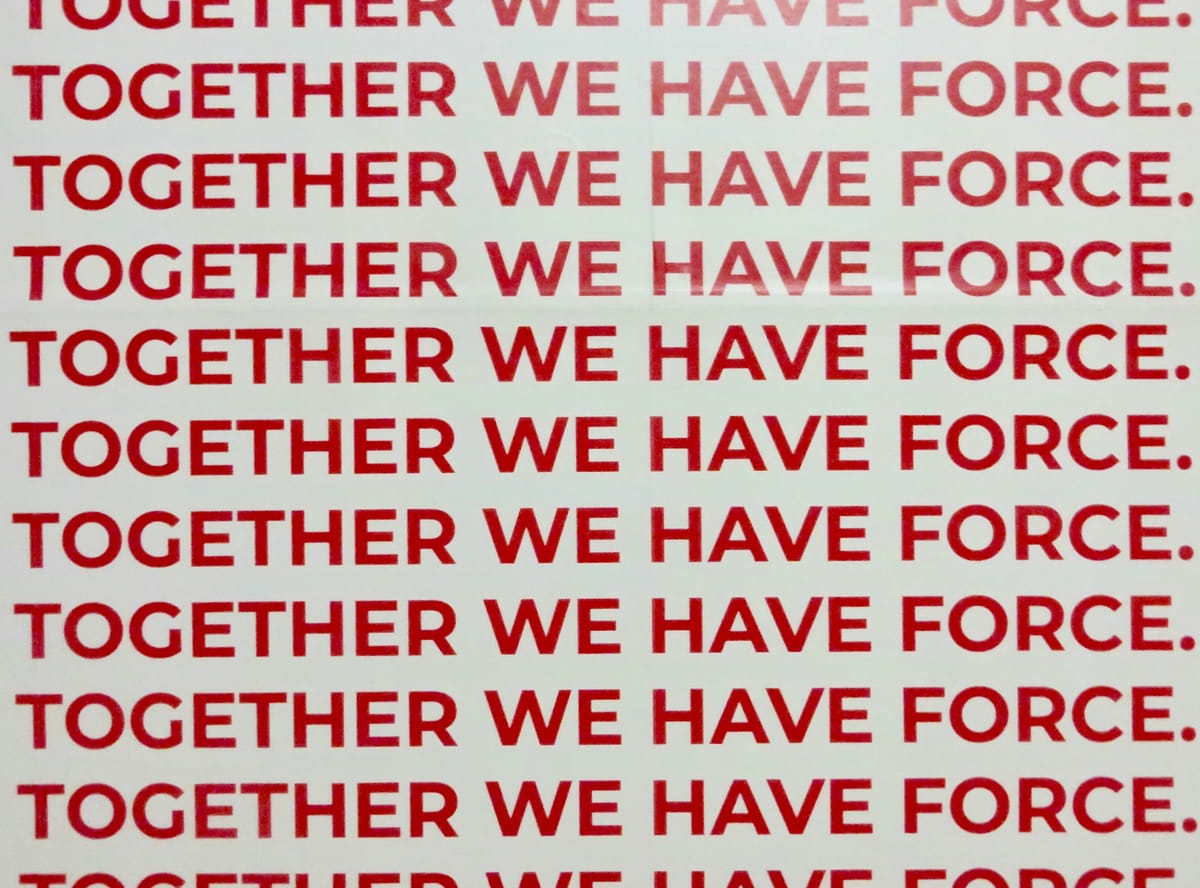Prophecy, Prosperity and Power
Who are the MAGA faithful?

This article was originally published at Religion Dispatches.
This morning, PRRI released a new study on religious change in the US with implications for understanding support for White Christian nationalism and its avatar, Donald Trump.
Those implications fall into two broad categories: religious change and the faith identity of Trump’s followers. To set the scene for the first category, let’s list some general points of interest:
- Mainline Protestants outnumber evangelicals by a very slim margin
- Only nine percent of religiously unaffiliated Americans are looking for a new “religious or spiritual home”
- Almost half of the people who reported leaving a religious tradition did so because of that tradition’s teachings on the LGBTQ community, and
- Disaffiliation and decreases in worship attendance can be seen across the board, affecting Republicans and Democrats alike.
So one takeaway from PRRI’s study is that the US is in a process of secularization; fewer people say faith is important to their lives, and when they give up their religious affiliation they’re not interested in going back.
This shift proceeds more slowly with some demographics than others. In 2016, according to PRRI, White evangelicals retained about two-thirds of their members (66%), a retention rate that has increased substantially in 2023 to 76%. Meanwhile, the rate of disaffiliation has accelerated for almost every other Christian demographic. This might reflect a “circle the wagons” mentality that only gained momentum in the Trump years.
Still, this is a societal change not limited to any one creed, age, or race. Everyone is experiencing disaffiliation, albeit at different rates. That point cannot be separated from how we understand Christian nationalism and the MAGA base.
The next part of the equation is trickier to describe. As RD recently reported, Republican churchgoers are more likely than other members of the GOP to be Christian nationalism adherents or sympathizers.
It might appear, then, that the answer to Who are the Christian nationalists? is: The people who go to church. But given the breadth of the Republican coalition, this is hardly a satisfactory answer. Are the Christian nationalists fundamentalists? Catholics? Protestants? If so, what kind of Protestant?
To get a more specific answer, PRRI examines two sets of factors. The first set concerns “Charismatic elements in churches.” When most people think of Charismatic practices, they might envision divine healing or people speaking in tongues. But PRRI includes such features as receiving an answer to a specific prayer, being empowered by the Holy Spirit to accomplish something, or a direct revelation from God. In short, they take a phenomenological approach not limited to charismatic denominations. The elements could be found in any kind of church.
Somewhat surprisingly, Republicans are statistically no more likely than Democrats to encounter these elements in their churches. It’s all about the math: White evangelicals, most of whom are Republican, outnumber Black Protestants (who overwhelmingly vote Democratic), so even though the latter are much more likely (66%) to say they’ve experienced charismatic events in worship than the former (41%), the numbers balance out.
Christian nationalism adherents and sympathizers are significantly more likely to have encountered charismatic elements, and yet, of the Republicans who experience high levels of charismatic events in their churches, roughly the same number approve of Trump as disapprove of him.
In other words, Christian nationalists are disproportionately charismatics, but not all charismatics are Christian nationalists. In fact, charismatic Christian nationalists make up only about one-quarter of all Republicans. That’s still disproportionate, but it’s not enough to explain MAGA by itself.
So while going to church doesn’t appear to work against support for Trump it probably doesn’t drive people into the MAGA movement in and of itself. More than likely, neither does experiencing charismatic events in church. There must be something else going on.
That “something else” appears to involve beliefs about prophecy and the prosperity gospel, rather than charismatic experiences. Those beliefs, rooted in Pentecostalism, include ideas like:
- God reveals his plans for the future to humans in prophecy
- God has given some people the power to heal others through prayer and the “laying on of hands”
- Modern-day prophets continue to reveal God’s plans to humanity
- God always rewards those who have faith with good health, financial success, and fulfilling personal relationships
Black Americans are again more likely than others to agree with these beliefs. But Republicans are more likely to agree with these statements than Democrats—and they’re likely to hold those beliefs more strongly.
Furthermore, Republicans who approve of Trump are more likely to hold strong prophetic and prosperity beliefs than those who do not. And Republican Christian nationalists? They’re three times more likely to hold those beliefs than Republicans who reject nationalism.
The backdrop here is again secularization and ongoing demographic shifts. It may be that (primarily White) voters, fearful—or resentful—of losing their place in society, find the highly individualistic prosperity gospel a comforting religious framework. Some of them are happy to force that framework on the rest of society to maintain their standing in the racial hierarchy.
All of which suggests that there is a relatively small band of people with strongly held religious beliefs pulling the Republican Party toward Christian nationalism. They are not, however, the ones who usually get the splashy headlines for their association with the MAGA movement, the way Russ Vought or Mike Flynn do. Nor are they the only ones pulling the party toward Christian nationalism. But they, and their beliefs, deserve more attention. A lot more.